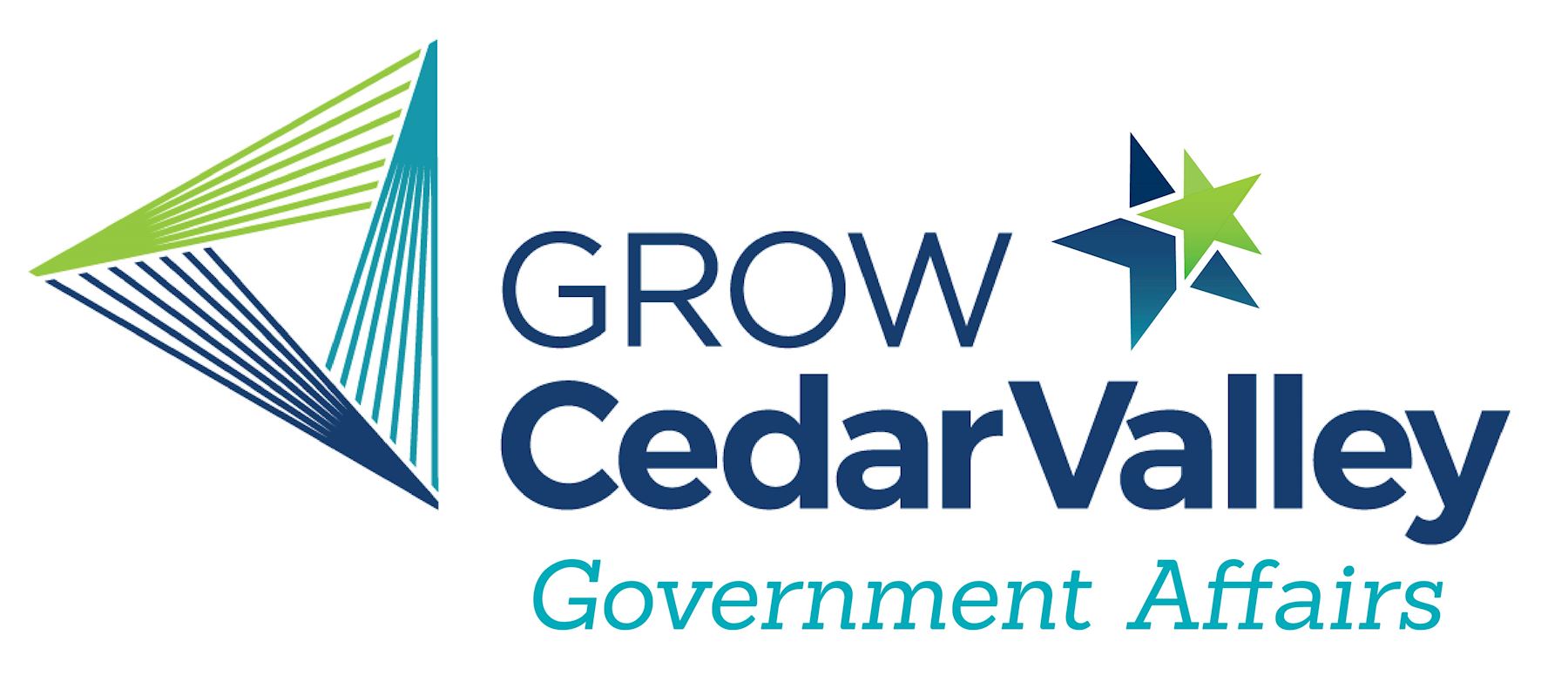2020 Legislative Session – Setting the Scene
posted on Tuesday, January 7, 2020 in Government Affairs

The 2020 Iowa General Assembly convenes on Monday, January 13. Grow Cedar Valley advocates for smart pro-business policies on a continuous basis that support our priority of economic growth for the Cedar Valley and for Iowa. In 2020, our advocacy efforts at the state level will be focused in three broad areas: talent development, attraction and education; economic development; and transportation, infrastructure and connectivity.
development; and transportation, infrastructure and connectivity.
As we look forward to the opportunities and challenges ahead, it is always important to know who the players are that we will be working with. The House of Representatives, the Senate and the Governor’s office are all controlled by Republicans – the fourth year of the so called “trifecta.” The House is split 53 Republicans to 47 Democrats. The Senate has an even stronger majority: 32 R’s vs. 18 D’s. And Republican Governor Kim Reynolds is in the second year of her four-year term.
The Senate is led by Majority Leader Jack Whitver of Ankeny and Minority Leader Janet Petersen of Des Moines. New to the top job in the House, that of Speaker, will be Pat Grassley of New Hartford. Todd Pritchard of Charles City will continue as the House Minority Leader. As this is an election year, many members of the Legislature will be pressuring the leadership in both chambers to get the session over quickly so they can begin campaigning in earnest. But the leaders in each caucus have items they believe must be addressed this year.
There are several issues Grow Cedar Valley will be urging the Legislature to tackle in 2020. In the area of talent attraction and retention, we have identified the need for better access to high quality, affordable child care as a major impediment to bringing more people into the workforce. This issue is on the agenda for all four caucuses, so hopefully some action will be taken to address this situation. Whether it is through providing assistance to low-income individuals so they can pay for child care or providing incentives to increase the number of child care providers, we think we are past the time to act. In particular, we would join forces with those calling for an end to the child care “cliff”, whereby someone whose income in a job pushes them just over the limit for assistance, leaving them with little choice but to quit the job.
Creating attractive places for people to live and work is a key to attracting talent to our state and region. We believe this includes developing quality of life projects that leverage local communities’ assets. Community placemaking projects, as they are often called, and recreational opportunities are vital components of Iowa’s workforce attraction and retention strategy. All across the state, each community offers something different that can be enhanced to appeal to current or future workforce. GCV supports the identification of such projects in the Cedar Valley and the development of partnerships between the state and our communities to create sustainable and permanent funding sources for them. Continued funding for programs to do this such as the Community Attraction and Tourism grant program and the Iowa Mainstreet grant program are essential as well.
The Republican majorities are both going to focus on budget responsibility and tax reform. We will be watching their initiatives closely and will help drive forward issues that will create meaningful opportunities and changes for the people of the Valley.
One particular tax issue that could arise is the sales tax increase called for in the IWILL (Iowa’s Water and Land Legacy) legislation. A constitutional amendment passed in 2010 called for the first 3/8 of any penny increase in the state’s sales tax to go toward conservation and water quality, as well as heightening the quality of life in Iowa. As it is doubtful that the state would do anything less than increase the tax by a full penny, the challenge that arises is how to spend the additional 5/8 of a cent.
Recognize that we are talking real money here. Each penny of sales tax generates approximately $480 million. So the 5/8 cent increase amounts to around $300 million. The Senate Republicans would probably prefer to use the extra money to bring down other taxes, thus making IWILL revenue-neutral. There are other ideas, however, for using the extra about $300 million revenue that would total: strengthening the state’s mental health care system; improving transportation and child care in the state to address workforce issues; making additional dollars available for placemaking efforts; removing some things now paid for through the general fund and funding them through sales tax instead; and many others. We will be monitoring these efforts closely.
As always, we will be advocating for full and hopefully increased funding for education at all levels, preK-16; maintenance of tax increment financing (TIF) as a local economic development tool; maintaining the property tax backfill; finding ways to improve infrastructure by creating long-term, reliable funding streams; supporting Future Ready Iowa and many other initiatives we have consistently stood for in the past.
If desired, the Grow Cedar Valley 2020 legislative priorities and policies can be found here.
- Steve Firman, Director of Government Affairs
